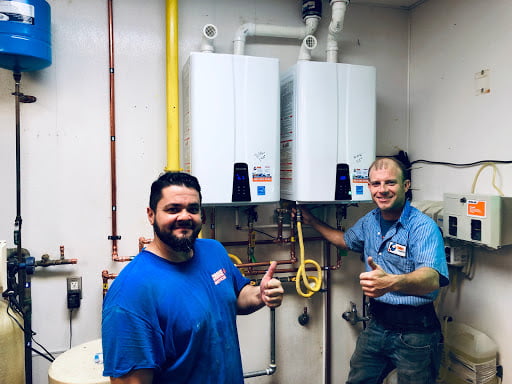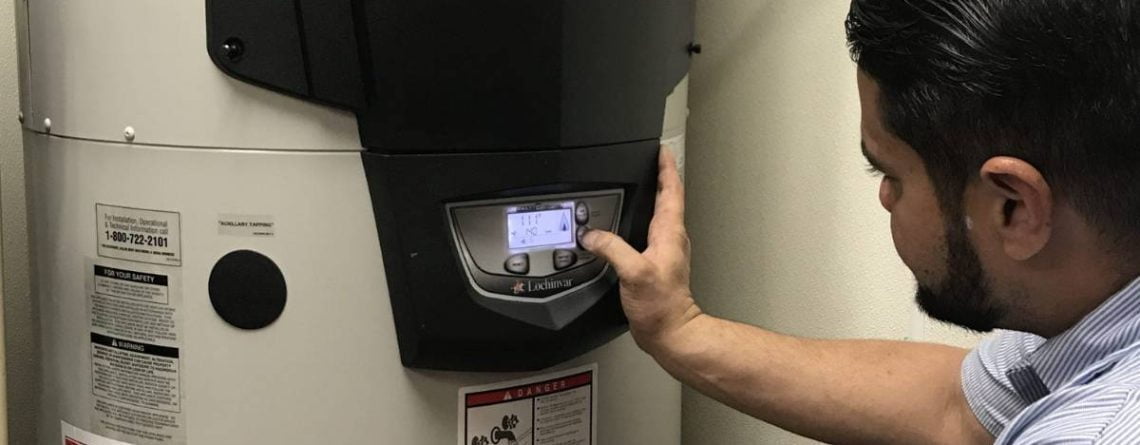How To Choose a Water Heater Type: Tank or Tankless?
How to choose a water heater type can be confusing, so here are the pros and cons of each. We compare Tank (conventional water heater) Vs. Tankless (on-demand hot water heater). So you’ve decided that you need a new water heater. Maybe you’re moving into a new home or you’ve just come to that point in time when you need an upgrade. Either way, there are so many decisions you have to make, what brand of water heater, what fuel source do you want to power it, and most importantly should you go tank or tankless?
A water heater is a huge contributor to the comfort of your home. Water heaters are a device you use almost daily. In fact, your water heater accounts for nearly 17% of your home’s energy usage—consuming more energy than all your other household appliances combined. This means that you really need to make sure that you choose the best possible appliance for your home. When you’re looking for a new water heater repair or installation in Orlando, FL then contact our team.
So, Tank or Tankless?
Let’s run through the pros and cons of both.
Tank Water Heaters
Price: Tank water heaters are very affordable upfront, and they have easy installation.
Lifespan: Tank water heaters can last anywhere around between 10 and 15 years.
How they work: Tank water heaters are the water heater you’re probably thinking of when you envision a water heater in your mind. Tank water heaters are also known as storage water heaters. This is the most common type of water heater across the nation. They run on either natural gas or electricity. These water heaters store about 30 to 50 gallons of water in the tank that’s preheated. This means that water is always ready when you need it—when you flip on the faucet to wash the dishes or run a load of laundry this water is used and then the tank refills to heat once again.
Tankless Water Heaters

Price: Tankless water heaters are more expensive to install upfront but the savings from the energy efficient offset the initial cost after just a few years.
Lifespan: Tankless water heaters typically last 20 years or more.
How they work: Tankless water heaters worked a little differently than tank water heaters. Tankless systems heat your water “on demand.” This means that the water you need is heated on the spot using gas or electric coils. Only heating the water you need means that you’re never wasting energy. The major downside of tank water heaters is the “standby loss” they experience by just having their water sit in the tank. The biggest downside to tankless systems is that, depending on the size of your home and family, they’re not always able to provide your home with hot water. If you’re running the dishwasher, taking a shower, and someone in the bathroom is washing their hands you might not have enough hot water all at once. Around the Orlando area you have a couple of options with the most popular tankless water heaters, Rinnai and Navien.
If you still need help on how to choose a water heater type, contact us for a free consultation or estimate. We’ll assess your home and find the system that’s perfect for your specific needs.

